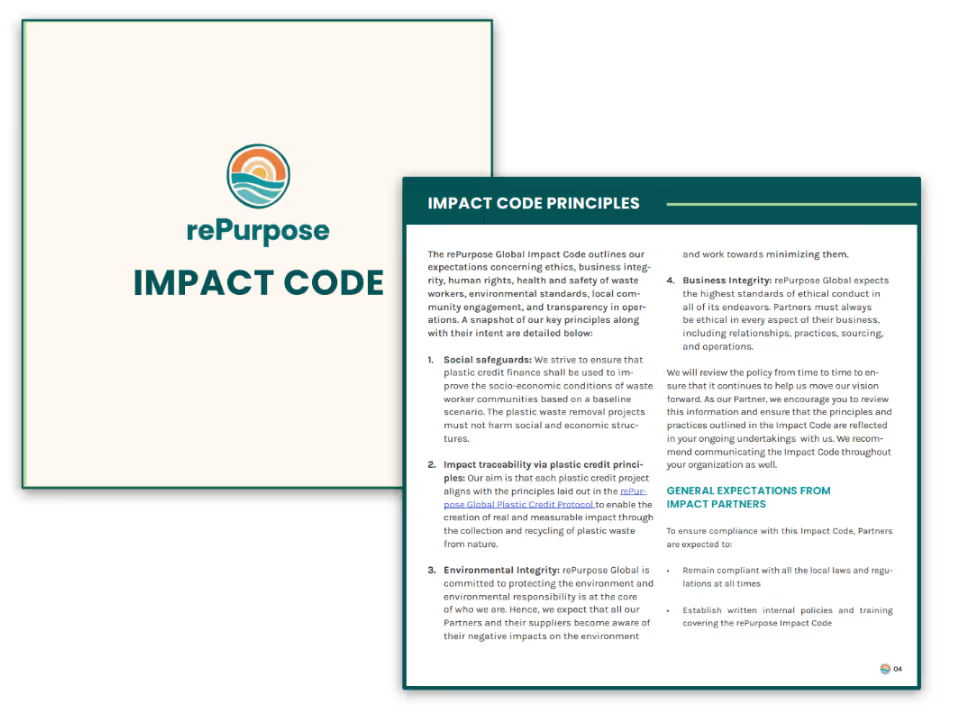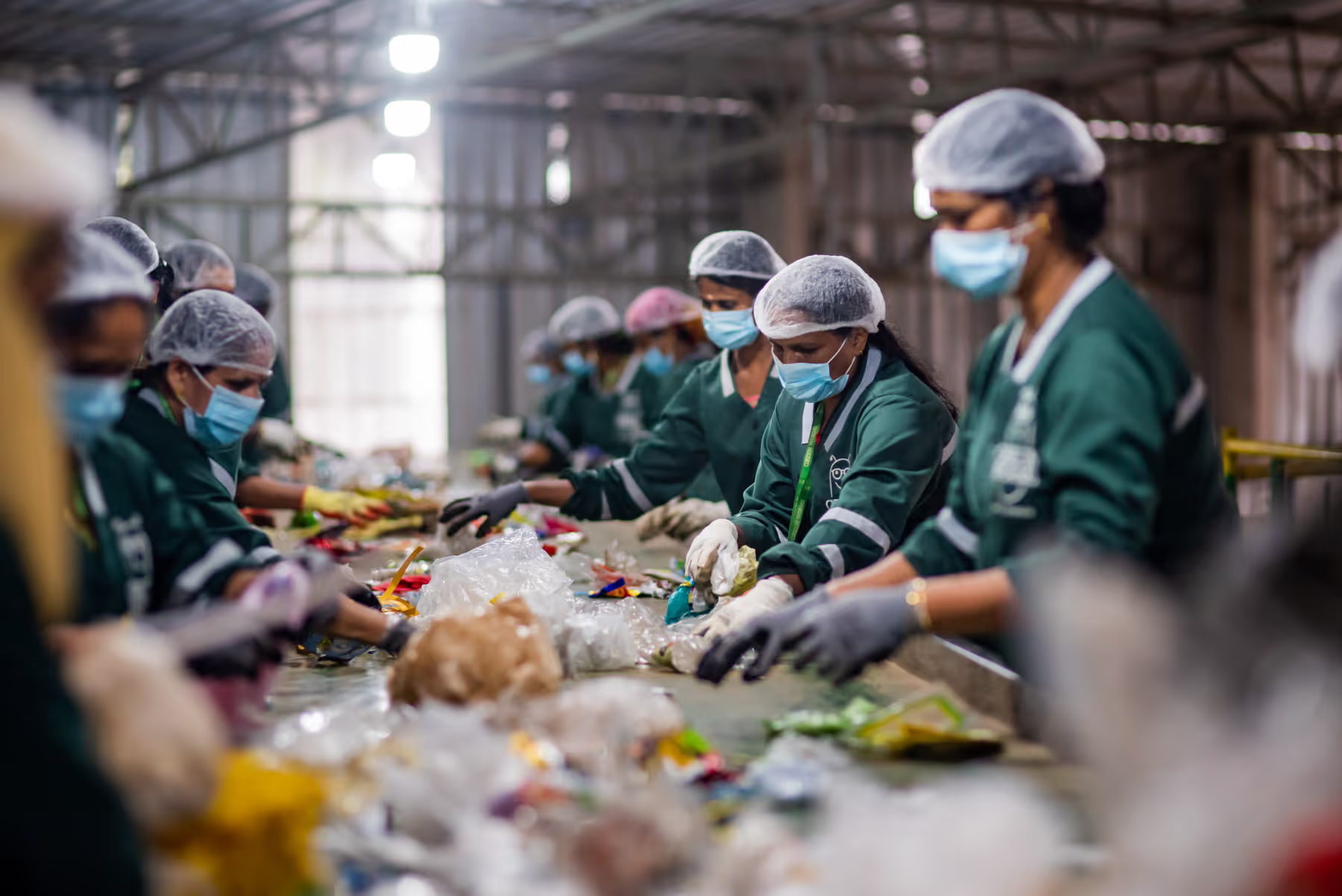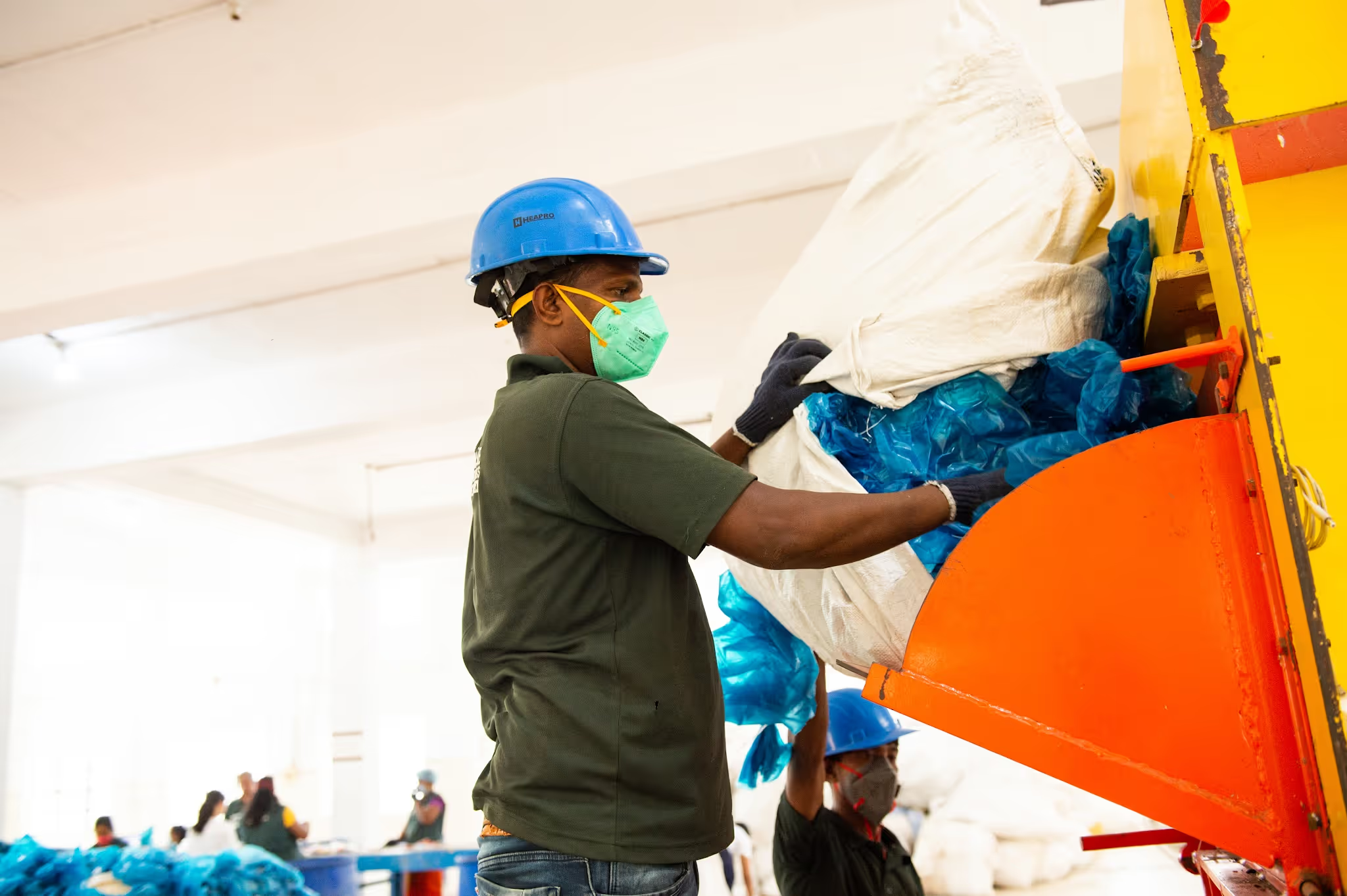To read a pdf that summarises 7 key aspects of the rePurpose Impact Code’s social safeguarding, click here to download.
The importance of social safeguarding
rePurpose Global’s tagline is: reducing waste, reviving lives, and restoring nature’s balance.
Reducing waste and restoring nature’s balance refer to our solutions that catalyze the reduction and recovery of nature-bound plastic waste – helping tackle plastic pollution.
Reviving lives refers to our ambitions for the people we work with. Our plastic recovery projects are run in partnership with local waste management impact partners in six countries, across four continents.
Through these partnerships, we have a stated mission to support the communities that we are working with.
Waste workers are often marginalized by society, and are exploited and underpaid by others in the waste management industry. Some waste pickers in the informal sector in India are earning less than $1 per day, and there is evidence that a gender pay gap exists in the sector with women earning less than men.
Waste pickers often work in dangerous and unhealthy conditions, especially those working on illegal or poorly-managed waste dump sites which can be affected by landslides and and explosions. Those living near waste dumps are at higher risk of injuries, respiratory diseases, and skin conditions, and the life expectancy of inhabitants of the Deonar landfill site in Mumbai, India, is just 39.
To address these injustices and to maximize opportunities and benefits for waste workers and their communities, we have created a guiding set of safeguards for projects, workers, and communities. These guidelines set out a vision of how the project will run, to:
- ensure safe and ethical practices – and sustain these practices through ongoing monitoring; and
- benefit waste workers – and strive to increase these benefits over time.
This is all documented in the rePurpose Impact Code.

Development of the rePurpose Impact Code
rePurpose Global is a leading innovator in the plastic action and recovery space. In addition to supporting waste workers, we recognize that there is a need for a transparent and standardized framework that governs the implementation of our projects. This supports us to provide assurances to all of our stakeholders that projects are being well-run, and pose no reputational risk.
The Impact Code draws on our experience of working on projects and collaborating with our partners. It also aligns with international best practice, and offers ambitious goals and guidance for our partners to work towards. To develop the Impact Code we consulted with representatives from Inclusive Waste Recycling Consortium (iWrc), UNDP, and organizations that represent informal waste pickers including Hasiru Dala in India.
Compliance with the rePurpose Impact Code helps partners to professionalize their operations, and opens them up to new and better possibilities in global markets.

The rePurpose Impact Code and social safeguarding
As a starting point the rePurpose Impact Code sets out that projects must remain compliant with all local laws and regulations. Further requirements are included to maintain health, safety, and fair treatment of workers.
rePurpose Global aims to set the industry gold standard in improving conditions and opportunities for waste workers in under-served regions. So as well as mandatory requirements, the code includes aspirational goals that projects are supported to achieve over time.
This is all brought to life and monitored on an ongoing basis by the rePurpose Impact Projects team – keeping the rePurpose Impact Code at the forefront of our work.
The idea of social safeguarding is central to the Impact Code: providing fair, safe, and dignified opportunities for waste workers and their communities so that they can benefit from waste management. These social safeguards include:
- Fair working conditions: including fair pay for employees, working hour directives, and rights of workers;
- Fair pricing practices for informal waste pickers, and potential support for development programmes for waste workers and informal actors;
- Policies to prevent child labor or forced labor;
- Gender equality and workplace diversity policies; and
- Health, safety and wellbeing of workers upheld with various workplace safety measures and other protocols to promote health, hygiene and wellbeing.
- Business integrity and grievance redressal procedures.
Tell me more...
For anyone wanting the complete picture, the full rePurpose Impact Code document is available for download from this link.
To read a pdf that summarises 7 key aspects of the rePurpose Impact Code’s social safeguarding, click here to download.



.avif)

.avif)






